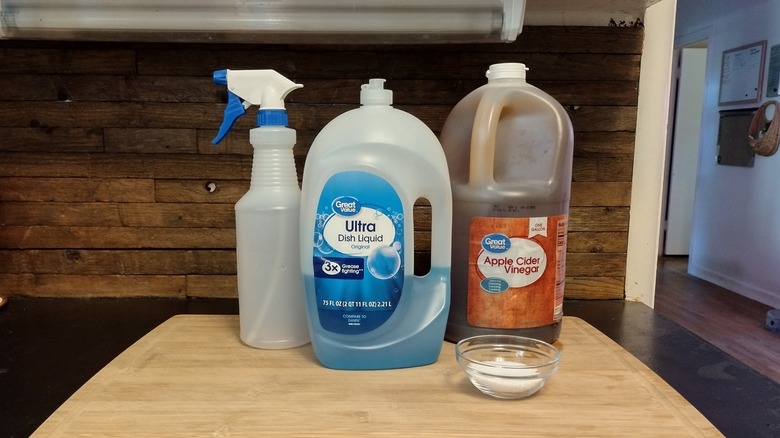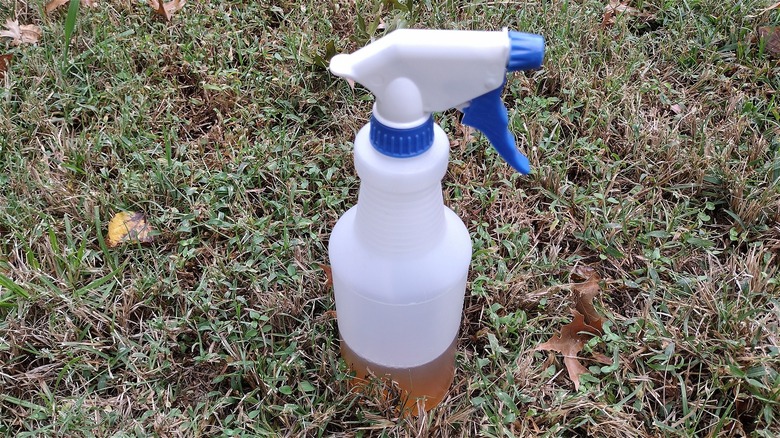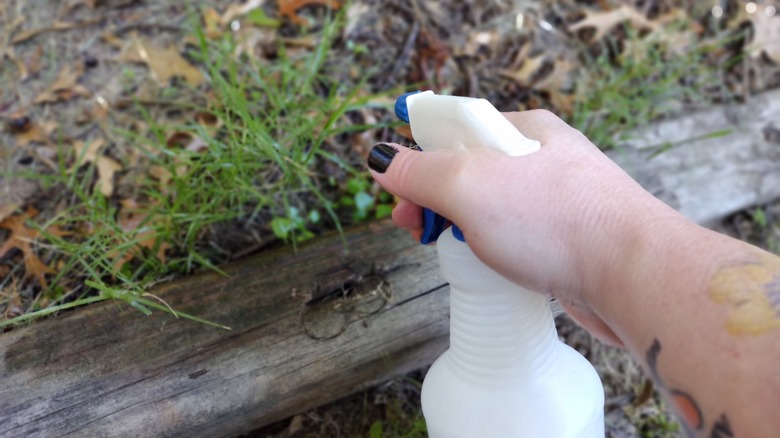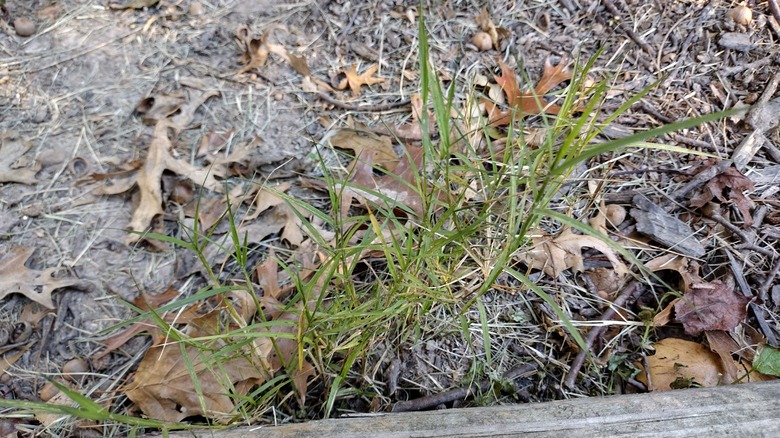We Tried DIY Weed Killer & Here's Our Advice To Make It Worth Your Time
We may receive a commission on purchases made from links.
For years, we have heard about using a vinegar mixture to deal with unwanted grass in our flowerbeds as an alternative to synthetic herbicides. In an attempt to grow the healthiest, cleanest food and prevent harm to beneficial insects, we spend a lot of time pulling unwanted grass and weeds by hand. Still, it would be really nice to find something less time-consuming and physically demanding to keep the pervasive Bermuda grass out of our vegetable garden and flower beds. We finally tried using the vinegar, salt, and dish soap mixture we had read about to see if it might be the miracle we were looking for.
While we do not practice organic gardening exclusively, our concern for wildlife and the local watershed limits the choices of natural and synthetic products we are willing to use in our space. Horticultural vinegar is much more concentrated than what you find at the grocery store, but we could not get it locally. Since that heavy-duty vinegar is used for weed control, we thought what we have in our kitchen might work as well as many organic websites claim. We tried it on our toughest grass.
Making homemade weed killer
There was really no risk in trying out this vinegar-based weed killer since we already had all the ingredients at home. Different websites recommend a few slightly different ratios and products, but it all comes down to a blend that is mostly 5% acid vinegar, salt, and some dish soap. This blend of ingredients is supposed to kill the green tops of unwanted plants, and if you use it often enough, the plant would no longer be able to perform photosynthesis and would completely die.
The recipe we found recommended 1 gallon of vinegar, 1 cup of salt, and 1 tablespoon of dish soap. Since we were just experimenting, we reduced that to an amount that would fit in a standard cleaning spray bottle while keeping the ratios intact. We mixed a pint of apple cider vinegar with 2 tablespoons of Epsom salts and ½ teaspoon of dish soap. We chose these products because we already had them, and many sites recommended Epsom salts over table salt. Apple cider vinegar still provided the 5% acidity we needed.
Applying our vinegar solution to Bermuda grass
In case this product ended up being more potent than we realized, we tried to keep it confined to one naughty patch of Bermuda grass that snuck into our flower bed. To be able to compare the sprayed grass to an unsprayed area, we selected a spot with two patches of Bermuda that were almost side by side. This plan helped us eliminate as many environmental variables as possible. Too much rain, heat, or cool temperatures should affect both patches equally, but only one would be sprayed with homemade weed killer.
To get the best results, we started our experiment on a warm, sunny day to try to extract the most potency from the vinegar. We gave our unwanted patch of Bermuda a thorough spray of our homemade weed killer, soaking all the leaves until they dripped. Then, we let the acid, salt, and sun get to work. The next day, we checked to see how our spray affected the grass. Since there seemed to be no change, we gave it another day to work. On the third day, without seeing any change, we soaked it again, hoping a second dose might do the trick.
Results
We cannot say our vinegar-based weed killer had absolutely no effect on the grass, but we can definitively say that it did not eliminate that patch. The best we can do is state that our sprayed area of Bermuda was slightly inconvenienced. On day five, after two thorough soakings and full days of sun, there is a slightly more brown hue to our unwanted grass and maybe some drying at the ends of the leaves. One thing is for sure: this is not the effect we had hoped for.
Seeing that the homemade weedkiller did have some effect on our grass makes us wonder if it might be more effective if it was used daily on the hottest days of summer. One thing we noticed is that the small weed seedlings near our unwanted grass were gone on day five. It appears this spray works on softer, less hardy plants than Bermuda grass, which is notoriously difficult to eradicate. Because of the amount of acid and salt that would leech into the ground by spraying an area multiple times, we would be concerned about using it anywhere we need healthy soil, like our vegetable garden or flower beds. We will definitely try this mixture in the cracks in our driveway to see if it easily gets rid of those unsightly weeds. We are definitely not giving up on this spray's usefulness yet, but now we know that it won't keep grass out of our gardens.



